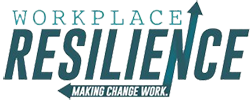 I was attending a wedding out of town and my husband decided he needed to pick up a few things at the mall. I had nothing pressing to shop for so I was just along for the ride. After he picked up a couple pairs of pants, we made our way to the second floor to use the restroom.
I was attending a wedding out of town and my husband decided he needed to pick up a few things at the mall. I had nothing pressing to shop for so I was just along for the ride. After he picked up a couple pairs of pants, we made our way to the second floor to use the restroom.
While walking to the second floor, he suggested I go in the store near where I was waiting for him. Well, why not, I thought. I peered into the women’s store to check out what they had to offer. My first thought was, the clothes definitely don’t look like me. I took a quick look at the salespeople and saw that they definitely didn’t look like my type. This wasn’t a store that would have anything that I want and I wasn’t sure that I would feel comfortable in there.
Now, all those thoughts that I just mentioned happened in seconds. I wasn’t really conscious of any of this thinking. However, I looked again into the store and on the far wall, I saw a dress. Regardless of my earlier thoughts, I walked through the store and over to the far wall. There, I stared at the dress and admired the details. It looked well made and would be perfect for a wedding. I had seen similar dresses at all the top stores. I reached for the price tag and stared a while, trying to comprehend what it said.
The tag said $9.99. It wasn’t marked down but was the original price. I am not joking.
I grabbed the dress quickly and ran into the dressing room. It fit perfectly and I loved it. I went back and picked up the same dress in another color— when are you ever going to get two dresses for 20.00?
So why am I sharing this story about the dress? Well, let’s go back to my thoughts at the beginning of the story. I wasn’t going to walk in the store originally because I had decided that the store was not for me. I had an unconscious bias against the place since the “feel” and the employees didn’t look like me. My brain quickly processed, categorized, and assessed that I didn’t fit into this environment.
However, the important nugget in this story is the fact that I was able to override this assumption and walk in the store anyway. As you have already learned, I reaped the benefit from listening to this internal chatter and making a conscious decision that my thinking had no merit.
Each one of us is guilty of implicit bias in our day-to-day interactions. Our brains are wired to process information quickly and make rapid speed decisions. Our ancestors were blessed with this ability so they could survive and adapt to dangerous situations. However, this ability often holds us back from living our best life and treating others fairly. Consciously, we might not agree with these stereotypes, but our primitive brain is ruling our actions.
So think about your actions in your personal and professional life. Are there situations where you have let your primitive brain make the decision for you?
You might lose out on more than just a 10.00 dress.

















